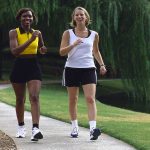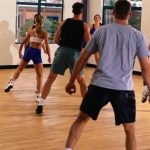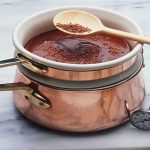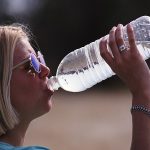(HealthDay News) — Screen devices such as smartphones and TVs are making children more sedentary, the American Heart Association says. This lack of movement is linked to obesity in young people. Experts recommend that parents limit children aged 2 to 5 to one hour of screen time per day. Older children are also cautioned against too much screen time, although no specific time limit has been noted.
A little about: Weekly Gravy
All Sauce from Weekly Gravy:
Low-Carb Diets Linked to Higher Odds for A-Fib

Keto, Paleo, Atkins — there’s no shortage of low-carb diets to try, but new research suggests that over time, living low-carb can raise your risk of a heart condition called atrial fibrillation, or a-fib. People who regularly got fewer than 45 percent of their calories from carbohydrates were 18 percent more likely to develop a-fib than people who ate a moderate amount of carbohydrates (about 45 percent to 52 percent of their calories). The Chinese researchers said the risk of a-fib was raised no matter what types of protein or fat were used to replace carbohydrates. “Extremes of anything aren’t good. Too much carbohydrate is bad and too little is also bad,” explained Dr. Laurence Epstein, system director of electrophysiology at Northwell Health in Manhasset, N.Y. Epstein wasn’t involved with the new study. Atrial fibrillation is a heart rhythm disorder. Instead of the usual heartbeat, the heart sometimes quivers in people with a-fib. Because the heart isn’t pumping properly, blood pools in the heart and can form clots. If a blood clot breaks free, it can reach the brain and cause a stroke, according to the American Heart Association. Although the current study was only designed to find an association, and not a cause-and-effect relationship, Epstein pointed to several reasons a low-carb diet could have negative consequences. He said that one way low-carb diets cause… read on >
FDA Approves Ketamine-Like Drug for Severe Depression

The U.S. Food and Drug Administration on Tuesday approved the nasal spray medication esketamine — a relative of the club drug and anesthetic ketamine — for use against severe depression. Sold as Spravato, the fast-acting drug becomes the first new type of medicine approved in years against an illness that plagues millions of Americans. In a statement, the FDA said Spravato should be used in conjunction with an antidepressant pill and is meant only for people whose depression has not responded to at least two other antidepressants. Spravato — a much less potent relative of the illicit club drug “Special K” — comes with other restrictions, the FDA said. Ketamine can induce dissociation (feeling disconnected from one’s surroundings) and sedation. Because Spravato might act similarly for a minority of patients, the FDA said safeguards are warranted. “Because of safety concerns, the drug will only be available through a restricted distribution system and it must be administered in a certified medical office where the health care provider can monitor the patient,” said Dr. Tiffany Farchione. She’s acting director of the Division of Psychiatry Products in the FDA’s Center for Drug Evaluation and Research. Patients will self-administer the nasal spray during visits to a medical clinic, and the spray cannot be taken home. A health care provider will monitor the patient until it is clear that he… read on >
Health Tip: Stretches for Young Athletes
(HealthDay News) — Flexibility helps prevent injury. Young athletes should stretch muscles before and after playing a sport, says the American Academy of Orthopaedic Surgeons. After warming up with a brisk walk, the AAOS suggests these stretches: Forward and side lunges. Standing quad pull. Seated straddle. Knees to chest.
An Outdoor Plan for Walking and Running

Sweating it out on a treadmill is great, especially when the weather is bad. You might even be motivated by watching exciting vistas on an interactive panel. But to keep a walking or running routine from becoming stale, kick it up a notch by taking your workout outside. Running or walking in the great outdoors can burn more calories, because you have to work against the wind and you don’t have a moving tread to keep you going. If you’re used to monitoring the length of your treadmill workouts on a built-in screen, stay motivated by finding other ways to track your output. If you already have a smartwatch, there’s a good chance it has a step counter app already installed. If not, you can download any number of fitness apps that count time and distance, calorie expenditure and more. If you don’t have a smartwatch and are on a tight gadget budget, you can buy an inexpensive pedometer to count your steps. Remember that it takes about 2,000 to 2,500 steps to make a mile, depending on the length of your stride. Now you’re ready to rev up your walking/running. Here are four ideas you can mix and match. To add intensity to your outdoor workout and increase your cardio effort, choose a route with some hills. Pick up the pace with interval training.… read on >
How Much Coffee Is OK?

It seems as though every day brings a new study on the merits — or the risks — of coffee. So what’s the real scoop? If you like drinking coffee simply for the pleasure of it, Harvard University research has found that sipping up to six cups a day is probably safe. Remember: Those are 8-ounce cups with about 100 milligrams of caffeine and little added milk and sweetener. A cafe drink can pack the equivalent of three cups, plus the fat and calories from any add-ins, so tally it accordingly. And it appears that coffee is not only “safe” to drink, it may also have actual health benefits, like protecting against diabetes, Parkinson’s and certain liver diseases. Coffee drinkers may also have a slightly lower risk of dying from heart disease compared to those who skip the java. How can a cup o’ joe have such wide-ranging effects? Coffee is much more than caffeine, with hundreds of different compounds, any of which can lead to a positive health outcome. While some studies have found an association between these benefits and drinking moderate amounts of coffee, even heavy coffee drinkers may benefit. A 2018 study published in JAMA Internal Medicine looked at 500,000 people who drank one to eight cups a day. Researchers found that heavy coffee drinking was associated with a lower risk of… read on >
Exercise Might Slow Colon Cancer’s Advance

Exercise has countless benefits, even in small doses. And new research suggests the payoffs might extend to colon cancer patients. Short sessions of intense exercise may slow the growth of colon cancer, Australian researchers report. “We have shown that exercise may play a role in inhibiting the growth of colon cancer cells,” said lead author James Devin, from the University of Queensland. The report was published Feb. 27 in the Journal of Physiology. “After an acute bout of high intensity exercise, there were specific increases in inflammation immediately after exercise, which are hypothesized to be involved in reducing the number of cancer cells,” Devin said in a journal news release. Devin and his colleagues at the University of Queensland worked with researchers at the University of Waterloo in Ontario, Canada. The team took blood samples from 10 colon cancer survivors who had one session of intense exercise, and 10 survivors who had 12 exercise sessions over four weeks. Analyzing the samples for the growth of cancer cells, the researchers found that even one session of high intensity exercise appeared to reduce the growth of colon cancer cells. These short exercise bouts are as important as longer regular exercise, they said. The findings also suggest that continued exercise may aid in the “fight against cancer.” Moreover, they highlight the importance of regular exercise and leading a… read on >
Hot Cocoa May Ease the Fatigue of MS

Fatigue can plague many people with multiple sclerosis (MS). But a small new study suggests a soothing cup of hot cocoa may bring some relief. Like dark chocolate, cocoa is rich in flavonoids, which are abundant in fruit and vegetables and have been linked with anti-inflammatory properties, explained researcher Shelly Coe, of the Center for Nutrition and Health at Oxford Brookes University in the United Kingdom, and her colleagues. That anti-inflammatory power may help fight MS fatigue, the researchers believe. “Our study establishes that the use of dietary interventions is feasible and may offer possible long-term benefits to support fatigue management,” Coe said in a news release from the Journal of Neurology, Neurosurgery & Psychiatry. Her team published their findings online in the journal March 5. Prior research has suggested that dark chocolate, which is between 70 percent and 85 percent cocoa solids, appears to lessen fatigue in people with chronic fatigue syndrome, the British researchers noted. Would cocoa do the same for MS patients? To find out, Coe’s group tracked the symptoms of 40 adults recently diagnosed with the common “relapsing remitting” form of MS. Participants were asked to drink a cup of either high-flavonoid cocoa powder mixed with heated rice milk (19 people) or a low-flavonoid version (21 people), every day for six weeks. Small improvements in fatigue were seen in 11 of… read on >
Health Tip: Foods that Reduce Inflammation
(HealthDay News) — From heart disease to arthritis, many major diseases have been linked to chronic inflammation. Favoring anti-inflammatory foods in your diet could reduce your risk of illness. Harvard Medical School recommends that anti-inflammatory diets include: Tomatoes. Olive oil. Nuts. Fatty fish, such as salmon and tuna. Green leafy vegetables, such as spinach and kale.
Easy Ways to Rev Up Your Metabolism and Burn Calories

Your metabolism rate determines how fast you burn calories, and that can influence how fast you lose weight — and how easily you can gain it. After age 25, metabolism naturally slows by 5 percent every decade. So if you eat as much in your 40s as you did in your 20s, you’re going to add extra pounds — especially if you exercise less and lose muscle. In addition to weight training to maintain muscle, these tips from the American Council on Exercise can help. Stick to well-spaced meals at the same times each day. This lets your body know to expect fuel at regular intervals and prevents it from conserving calories and adding to fat stores. Calorie cutting is important if you need to lose weight, but reducing your intake to starvation levels also puts your body in conservation mode, slowing down metabolism. So rather than speeding up weight loss, starvation ultimately slows it. And that’s why it’s so easy to regain lost weight when you start eating normally: Your metabolism tends to stay slow. Dehydration can lead to a 2 percent drop in the number of calories burned, so drink at least 8 glasses of water throughout each day, and even more when you sweat a lot. Watch the alcohol. Besides adding empty calories to your diet, processing alcohol diverts the liver from… read on >









